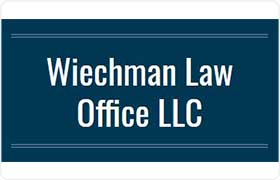Olsburg Collection Lawyer, Kansas
Sponsored Law Firm
-
 x
x

Click For More Info:
-
Wiechman Law Office LLC
1101 Sw 10th Ave. Topeka, KS 66604» view mapBankruptcy & Debt Law A Better Way Forward
Our mission is to guide our clients to a better way of life. We are here to listen. We are here to help. We’ll find a solution that fits you and your situation.
800-969-4051
Not enough matches for Olsburg Collection lawyer.
Below are all Olsburg lawyers.
Thomas Dean Addair
Thomas Addair graduated from Manhattan High School and Kansas State University. He attended law school at the University of Kansas. This is where Tom ... (more)
Bentson R. Oleen
✓ VERIFIEDIf you need an attorney that will always protect your best interests, call the Oleen Law Firm today. The Oleen Law Firm is committed to defending our ... (more)
FREE CONSULTATION
CONTACT Kerry Gasper Topeka, KS
Kerry Gasper Topeka, KS


